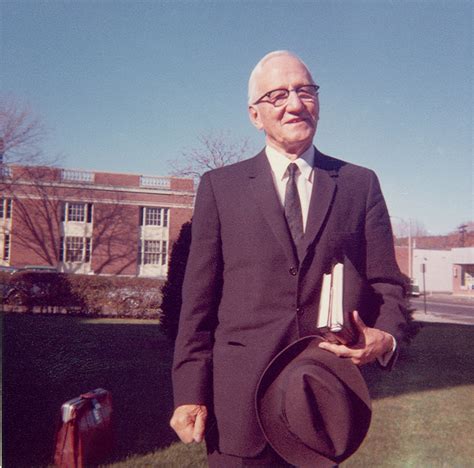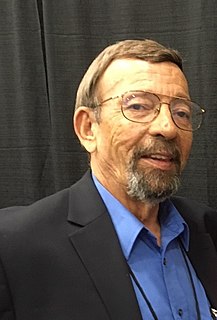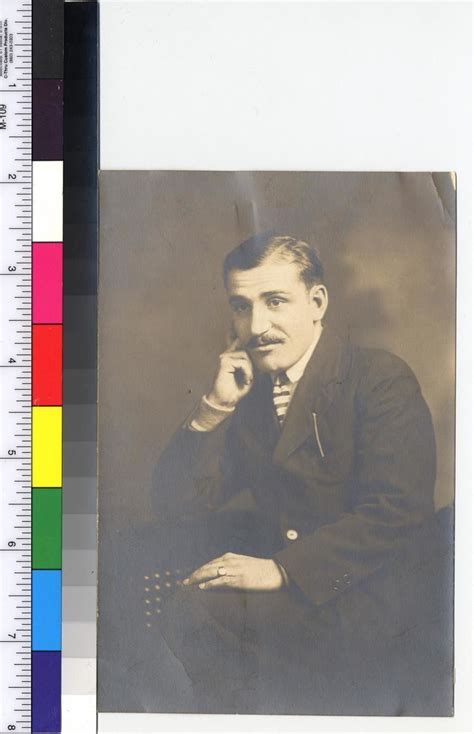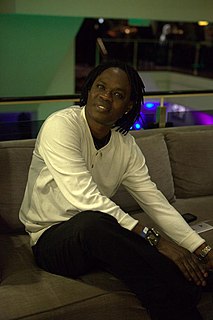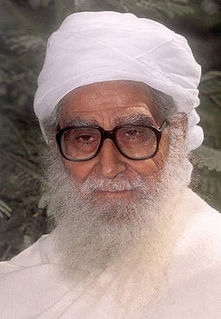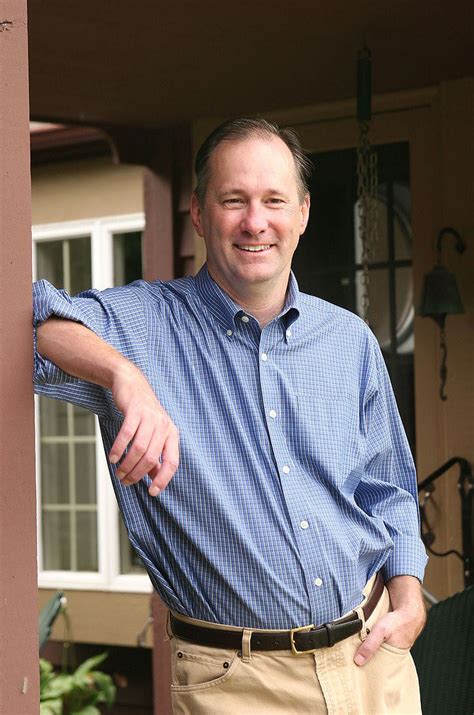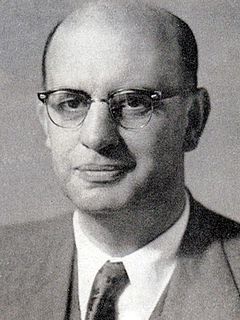Top 716 Section Quotes & Sayings - Page 11
Explore popular Section quotes.
Last updated on November 12, 2024.
You read something and you know it's not there yet. There's a little section here that... this part's good but that is a little not, it doesn't quite work. That doesn't quite work. That's easy. To say, "OK, now, this is what I think will fix it." That's harder. And most people can tell you what's wrong with something. Very few people can say what they would do to fix it.
I grew up Southern Baptist, so my experience was fairly conservative. Not archly so, but I think Memphis - when you get to certain parts of Memphis - are more liberal for sure. But I grew up, until I was about 13 or 14, in a section called Whitehaven, and then we moved to a suburb called Germantown - which is a pretty conservative area.
Serious or trivial, his daily behavior has instituted a canon which millions observe this day with conscious memory. No one regarded by any section of the human race as Perfect Man has ever been imitated so minutely.The conduct of the founder of Christianity has not governed the ordinary life of his followers. Moreover, no founder of a religion has left on so solitary an eminence as the Muslim apostle.
A large section of the idling classes of England get their incomes by believing that Jesus was born of a virgin and that Jonah swallowed a whale; and with the progress of science they were naturally finding this more and more difficult. A school of ingenious Bible-twisters arose, to invent symbolical and literary meanings for fairy tales, in order that people who no longer believed could continue with good conscience to collect the salaries of belief.
In my entire life, any time I've ever lost something, I've gotten something even better going around the next corner. It's like one door closes and another door opens. As long as I can walk through the produce section in every grocery store in this country and eat the grapes that they're going to throw away, I know I can be fine.
Then, you know, the other more-traditional role of the producer in, like, the kind of Quincy Jones sense is kind of part arranger. So you're coming up with, like, these - you hear these songs that are quite bare-bones, and you dream up what's the band doing? What's the rhythm section doing? What's the guitars, strings, pianos - that sort of thing. It's almost like a little toolbox.
A hijra is someone who has transitioned from male to female, but we don't consider ourselves female because culturally we belong to a completely different section of society. Many hijras are castrated, but it's not compulsory. They say it's the soul which is hijra. We feel we are neither man nor woman, but we enjoy femininity. I enjoy womanhood, but I am not a woman. It's very confusing.
In our Ashrams of East and West, places of spiritual retreat, we begin with what we call "The Morning of the Open Heart," in which we tell our needs. . . . We give four or five hours to this catharsis. The reaction of one member, who listened to it for the first time, was: "Good gracious, have we all the disrupted people in the country here?" My reply was: "No, you have a cross section of the church life honestly revealed." In the ordinary church, it is suppressed by respectability, by a desire to a appear better than we really are.
The particular skill that allows you to talk your way out of a murder rap, or convince your professor to move you from the morning to the afternoon section, is what the psychologist Robert Sternberg calls "practical intelligence." To Sternberg, practical intelligence includes things like "knowing what to say to whom, knowing when to say it, and knowing how to say it for for maximum effect.
My mind goes really quickly and I tend to talk really fast, as you've probably heard, I sometimes lose track of my syntax, as I'm talking that fast. The only thing I try to do, well, it's slow down, but also I do something when I'm reading that's similar to when I'm writing a section, which is to really try to imagine you on the other side, in a certain way, as an intelligent, sympathetic presence who's rooting for me to tell you a good story.
I write most of my first drafts on an old manual typewriter, a really old one. It's a big black metal "Woodstock" from about 1920. I try to write everything down at once, in one sitting. The longer stories in this collection are divided up into sections. Each section represents a different sitting, a different idea for the same story.
I suspect that relatively few people will sit down and read 1250 pages [ of The Enduring Authority of the Christian Scriptures.] all the way through from cover to cover. There may be some, but not everybody. But there are many, many, many different Christian, theological, pastoral, specialisms that are covered by one section or another of the book and this will become, therefore, a resource volume for many people.
I have so fixed the habit in my own mind that I never raise a glass of water to my lips without a moment's asking of God's blessing. I never seal a letter without putting a word of prayer under the seal. I never take a letter from the post without a brief sending of my thoughts heavenward. I never change classes in the section room without a minute's petition on the cadets who go out and those who come in.
I knew I had found my life's passion after writing my first column for The Washington Post. The response was like nothing we had seen in the business section. Everyday people were writing that finally someone was speaking to them in a way that was understandable. I think we were all shocked at how many readers wrote in to say that they too had a Big Mama who taught them about money.
What makes You Can't Take It With You so popular and a perennial favorite with student and amateur productions (it continues to be one of the top 10 best-selling plays year after year) is the breadth of characters and personalities on display: in age, race, gender, social status, a true cross section of society when the play was written and also true today in terms of the reality of the humanity on display.
My TWA enabled me to be done at the hair section much earlier than the other girls. I washed my hair and put some conditioner at home before heading to the Armory, where the show took place. The hairstylist basically only had to put some spray so that my TWA would be looking its best. It took the hairstylist literally 10 seconds.
Human knowledge is not (or does not follow) a straight line, but a curve, which endlessly approximates a series of circles, a spiral. Any fragment, segment, section of this curve can be transformed (transformed one-sidedly) into an independent, complete, straight line, which then (if one does not see the wood for the trees) leads into the quagmire, into clerical obscurantism (where it is anchored by the class interests of the ruling classes).
Whenever I go into Bloomingdales, I head to the womens shoe section and think, Hmm, maybe Ill get my next girlfriend a pair of those. I always buy my mom Louboutins or Jimmy Choos for her birthday. I have a pretty good sense of style, all in all. Once I figure out a woman, I know what she should wear - which comes in handy when you have a mom and girlfriends. You can always make them happy with a nice bag or a pair of pumps.
Labor produces marvels for the rich but it produces deprivation for the worker. It produces palaces, but hovels for the worker. It produces beauty, but deformity for the worker. It replaces labor by machines, but it throws one section of the workers back to barbaric labor, and it turns the remainder into machines.
I hadn't said goodbye. It had been easier, like always, to just disappear, sparing myself the messy details of another farewell. Now, my fingers hovered over my track pad, moving the cursor down to his comment section before I stopped myself. What was the point? Anything I said now would only be an afterthought. Elizabeth who goes by her middle name
At Carnegie Hall the Preservation Hall Jazz Band showed how easily it could hop from era to era. It could work like a rhythm-and-blues horn section or a tightly arranged little big band if need be, but it could also switch back into the polyphonic glories of vintage New Orleans jazz, in which nearly every instrument seems to improvise around the tune at the same time.
CSPS is a breath of musical fresh air. With a whale sized hooks and neck wrenching riffs you’ll have more than you need to fall head first into this band’s fanbase. Take a listen and see what all the fuss is about. I’m sure that if the bone tight rhythm section doesn’t lock you in, the finely spun lyric and melody will surely ensnare even the pickiest of musical palette.
I love that "furious and gorgeous barrage." That helps me see the relation between the introduction and the book's final section, where writing about a fire (and about the attempt to understand the event), also becomes an attempt to understand how writing might get closer to the fire, in so many ways.
All your clear and pleasing sentences will fall apart if you don't keep remembering that writing is linear and sequential, that logic is the glue that holds it together, that tension must be maintained from one sentence to the next and from one paragraph to the next and from one section to the next, and that narrative - good old-fashioned storytelling - is what should pull your readers along without their noticing the tug.
There was on section in First Corinthians 13 that talks about (showing) patience, kindness, politeness, how can I demonstrate forgiveness to my children and more fully enjoy them as they're growing up and vice versa. And so, each of those has a day's journey. There are 40 days that people will go through in applying these biblical principles for their kids. We spell them out in layman's terms so it's really easy to grasp a principle.
Usually I work out the plot before I start. This time I thought: Writers always talk about not knowing where a book is going - -I want to experience that, too. What I found out is that it's very interesting, but it takes much longer because you have so many false starts. You take wrong turns and you have to go back and start the whole chapter, or the whole section, from scratch.
Something keeps me moving forward, though. A lifetime of watching the Hunger Games lets me know that certain areas of the arena are rigged for certain attacks. And that if I can just get away from this section, I might be able to move out of reach of the launchers. I might also then fall straight into a pit of vipers, but I can't worry about that now.
I was born an ugly duckling due to my mother's ill health. She wasn't supposed to be pregnant, there were all kinds of complications, she couldn't survive a cesarean section etc. She said, "They didn't hand me a child, they handed me a purple melon." I heard that when I had grown up and had no idea of the whole story because the family album had pictures of a covered carriage and my mother smiling so I assumed I was asleep.
There was one sequence of days [making Lincoln in the Bardo] when I had halfway decided to use the historical nuggets, but I wasn't quite sure it would work. I'd be in my room for six or seven hours, cutting up bits of paper with quotes and arranging them on the floor, with this little voice in my head saying, "Hey, this isn't writing!" But at the end of that day, I felt that the resulting section was doing important emotional work
Those of us who have seen violent death up close, who have seen what high-powered bullets can do to living human tissue, have a horror of inflicting that nightmarish, never forgotten damage on a fellow human being. Perhaps the only more terrifying prospect is that such a fate should befall us or our loved ones. This is why we, a representative cross-section of America's population, keep deadly weapons for personal defense.
And for me, it is a choice. I understand that for many people its not, but for me its a choice, and you dont get to define my gayness for me. A certain section of our community is very concerned that it not be seen as a choice, because if its a choice, then we could opt out. I say it doesnt matter if we flew here or we swam here, it matters that we are here and we are one group and let us stop trying to make a litmus test for who is considered gay and who is not.
When the time of danger comes, all Americans, whatever their social standing, whatever their creed, whatever the training they have received, no matter from what section of the country they have come, stand together as men, as Americans, and are content to face the same fate and do the same duties because fundamentally they all alike have the common purpose to serve the glorious flag of their common country.
The schemes to set up blacks in cleaning stores, gas stations, hamburger stands and fried-chicken franchises, all the low-profit, low-capital enterprises, will rivet the Black man to the least remunerative section of the economy forever. The best such prospects offer are the dissatisfactions of blue-collar life. The big money ain't in pumping rationed gas in an Amoco station leased in your very own name, but in having stock in Exxon.
After finishing the first draft, I work for as long as it takes (for two or three weeks, most often) to rework that first draft on a computer. Usually that involves expansion: filling in and adding to, but trying not to lose the spontaneous, direct sound. I use that first draft as a touchstone to make sure everything else in that section has the same sound, the same tone and impression of spontaneity.
The "health, education, and welfare" section of government is another boondoggle. First we manufacture indigent and superfluous people by legal monopolies in land, money and idea patents, erecting tariff barriers to protect monopolies from foreign competition, and taxing laborers to subsidize rich farmers and privileged manufacturers. Then we create "social workers, " etc., to care for them and thereby establish a self-aggravating and permanent institutionalized phenomenon.
I never experimented with the hoddu like I wanted to do. Like on the song "Allah Addu," the hoddu and the voice is something that belongs to West African culture. When you go to the north of Mali, in the past it was just the singer and one instrument player. We never really did have that on our CDs. On some other songs, like "Laare Yoo," we have a whole section of hoddu, something like four of them playing together.
Not all Muslims become involved in acts of violence. Yet all might be held culpable. THis is because that section of Muslim--in fact, the majority--who are not personally involved, neither disown those members of their community who are engaged in violence, nor even condemn them. In such a case, according to the Islamic Shariah itself, if the involved Muslims are directly responsible, the uninvolved Muslims are also indirectly responsible. (p. 91)
Heat radiated off Henry's face. Salty snot ran down his upper lip. A majestic fart propelled him to the top of Section 12, just at the springing of the stadium's curve. He slapped the sign as if high-fiving a teammate. It gave back a game shudder. He was crusing now, darkness be damned, stripping off his sweatshirt and his long underwear top without breaking stride.
Raw pain alarms. us. It reminds us that life isn't as orderly as we'd hoped. We demand that pain settle down before we shuffle it off to the quiet table. We want pain to stay in its own little section, want to keep it from spilling over into the other parts of life. Just like . lunch trays. Keep pain in its own little compartment.
In a really equal democracy, every or any section would be represented, not disproportionately, but proportionately. ... Unless they are, there is not equal government, but a government of inequality and privilege: one part of the people rule over the rest: there is a part whose fair and equal share of influence in the representation is withheld from them, contrary to all just government, but, above all, contrary to the principle of democracy, which professes equality as its very root and foundation.
I love putting two things next to each other that don't necessarily belong, because then there's sort of a third atmosphere, a third space that is created depending on who the reader is. Some people will immediately make the links between who's in each section and see exactly what's going on and some people won't. And I don't think that matters at all.
I am one of those who believe that there is no permanent home for even a section of the Bantu in the white area of South Africa and the destiny of South Africa depends on this essential point. If the principle of permanent residence for the black man in the area of the white is accepted then it is the beginning of the end of civilisation as we know it in this country.
If you go to Australia, the Australian Open is on all day long on network TV. There's no way CBS, NBC and ABC would do that. They only show the finals. That's always been the case. They don't want to give the time to the biggest tournament we have in the United States. Any other country, it's everywhere -- front page of the main paper, front page of the sports section. We haven't had that here.
I really think, if anything, there is more evidence to show that the violent games reduce aggression and violence. There have actually been some studies about that, that it's cathartic. If you go to QuakeCon and you walk by and you see the people there [and compare that to] a random cross section of a college campus, you're probably going to find a more peaceful crowd of people at the gaming convention. I think it’s at worst neutral and potentially positive.
I rely heavily on Thomas Sowell's magnificent book, Black Rednecks, White Liberals. He points out that blacks in the North perform better, academically, than whites in the South where they did not have much of an emphasis on learning. But please note that I'm not the one making that argument in that section about Michael Moore. And by the way, I'm not a man. White men have done a lot. It's silly to write a book titled, Stupid White Men.
There are many other little refinements too, Mr. Bohlen. You'll see them all when you study the plans carefully. For example, there's a trick that nearly every writer uses, of inserting at least one long, obscure word into each story. This makes the reader think that the man is very wise and clever. So I have the machine do the same thing. There'll be a whole stack of long words stored away just for this purpose." Where?" In the 'word-memory' section," he said, epexegetically.
I've already written a section in the annual report for next year explaining why I think in one case that the figures on our balance sheet as calculated are wrong. But it's the standard way of doing it. It's holy writ. The SEC wants us to do it that way, and we'll do it that way, and I'll explain why I think it's wrong and shareholders can read it and see whether they agree with my logic or don't.
There is a section of our population in South Africa that you can't expect to get integrated in the economy of its own. These are people without skills and that will include young people who might very well have matric certificates, but don't have the skills to be absorbed in the economy. So we need to target people like those in a special way, in a focused way so that they have the skills and the capacity to participate in the economy. That requires special programmes.
Dean Burk, PhD, of the National Cancer Institute (head of their Cytochemistry Section and 32-year veteran at the agency) declared in a (May 30,1972) letter to (congressman Louis Frey, Jr.) that high officials of the FDA, AMA and ACS (American Cancer Society), were deliberately falsifying information, literally lying...and in other ways thwarting potential cancer cures to which they were opposed.
Here's my proposal, which is based on the TV show Survivor: We put the entire Congress on an island. All the food on this island is locked inside a vault, which can be opened only by an ordinary American taxpayer named Bob. Every day, the congresspersons are given a section of the Tax Code, which they must rewrite so that Bob can understand it. If he can, he lets them eat that day; if he can't, he doesn't.
Climate change will affect the whole of humanity, while terrorist attacks will only affect a small section of humanity. Of course, you wouldn't say that if you were related to someone who had been beheaded or blown up or murdered. But humanity is facing a very big, slow, long, drawn-out threat, and that is to do with the way the weather is changing and the size of the population.
Everyone praises Harvard 'for the students.' But what makes Harvard's students so great is that they are, in many ways, a cross-section of the larger world. They are normal people who happen to be excellent, and this sets them apart. People who go to Yale go because they want to attend Yale. People who go to Harvard go because they can.
Facts matter not at all. Perception is everything. It's certainty. People love the president because he's certain of his choices as a leader, even if the facts that back him up don't seem to exist. It's the fact that he's certain that is very appealing to a certain section of the country. I really feel a dichotomy in the American populace. What is important? What you want to be true, or what is true?
When I walked into the Christian section of a bookstore, the message was clear: Faith is something you do alone. Rick does not have much tolerance for people living alone. He's like Bill Clinton in that he feels everyone's pain. If Rick thinks somebody is lonely, he can't sleep at night. He wants us all to live with each other and play nice so he can get some rest. Tortured soul.
The real reason to abolish departments like Energy and Education is not to promote efficiency, nor even to save taxpayers’ money. It is that many agencies perform functions that are not Federal responsibility. The founders delegated to the Government only strictly defined authority in Article I, Section 8, of the Constitution. Search the entire Constitution, and you will find no authorization for Congress to subsidize the arts, finance and regulate education or invest tax revenues in energy research.
The Civil Rights Act of 1964 was the most sweeping civil rights legislation of its day, and included women's rights as part of its reforms. Ironically, the section on women's rights was added by a senator from Virginia who opposed the whole thing and was said to be sure that if he stuck something about womens' rights into it, it would never pass. The bill passed anyway, though, much to the chagrin of a certain wiener from Virginia.








